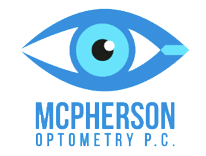How Does Diabetes Affect Your Eyes?
If you have diabetes, you have a heightened risk for eye diseases and complications than those who don’t have diabetes. However, with regular eye exams, your eye doctor can detect and treat eye problems early, and help to save your vision. Below are the main ways diabetes can impact your vision.
Blurry Vision
Blurry vision may indicate that your blood sugar is too high and is unmanaged. When you have high blood sugar, your eye lens may swell, leading to blurry vision and altering your ability to see. Usually, getting your blood sugar back into its targe range can return your vision back to normal.
Diabetic Retinopathy
High blood sugar can damage the very small blood vessels in your retina, leading to diabetic retinopathy. This condition needs to be treated in order to preserve your vision. You are more susceptible to developing diabetic retinopathy, the longer you have diabetes and if you don’t keep your blood sugar levels under control. People with diabetic retinopathy can also macular edema, whereby small blood vessels in the retina become leaky and cause the retina to swell.
Cataracts
Anyone can get cataracts, but if you have diabetes, you’re at risk of developing them earlier and they could worsen more quickly. Cataracts cause your vision to look cloudy as if you were looking through a smudged or dirty window.
Glaucoma
When the fluid in your eye is unable to drain as it should, pressure builds up, which can damage the blood vessels and nerves in your eyes. Over time, this can lead to loss of vision, usually beginning in the peripheral vision. Eye care professionals can screen for glaucoma, and if detected, can treat it to help to preserve your vision. While glaucoma can lead to blindness, proper and diligent treatment can halt the disease or slow down its progression.
If you have diabetes or were recently diagnosed with the condition, contact us here at McPherson Optometry in North Syracuse for an eye exam and screening for eye complications related to diabetes. We use advanced, state-of-the-art optometric and diagnostic equipment to give you the level of care you and your vision deserves. Call us at (315) 458-1000 or complete our online form.




Leave a Reply
Want to join the discussion?Feel free to contribute!